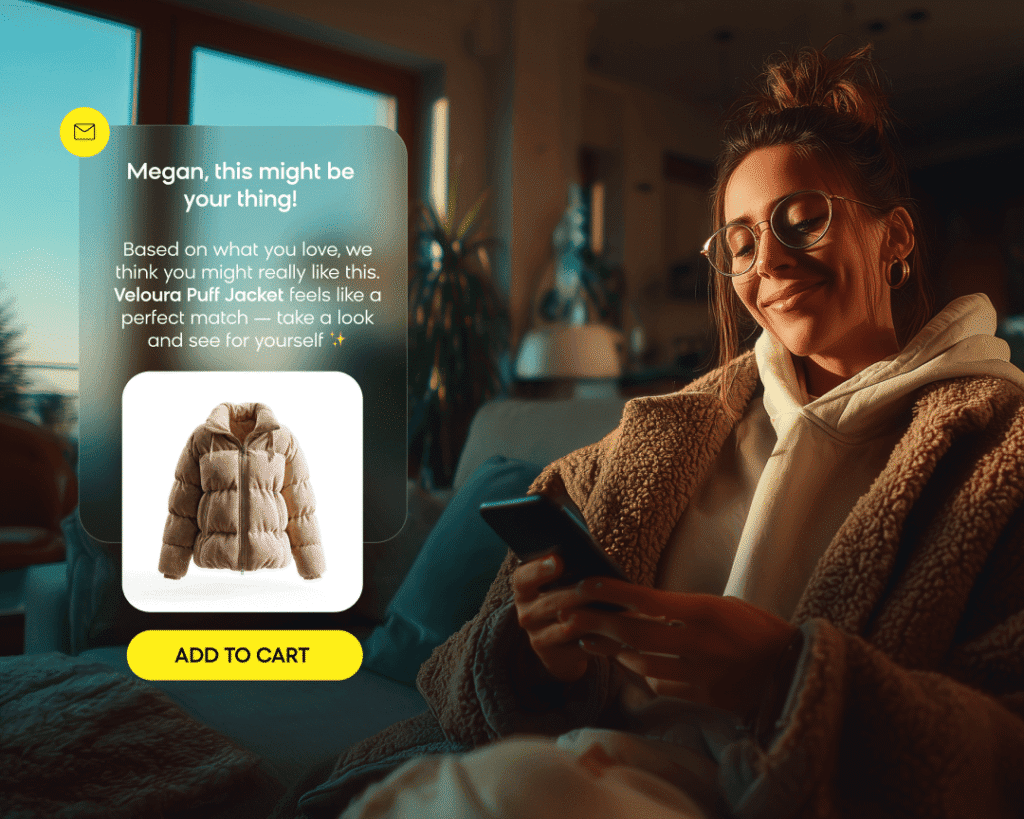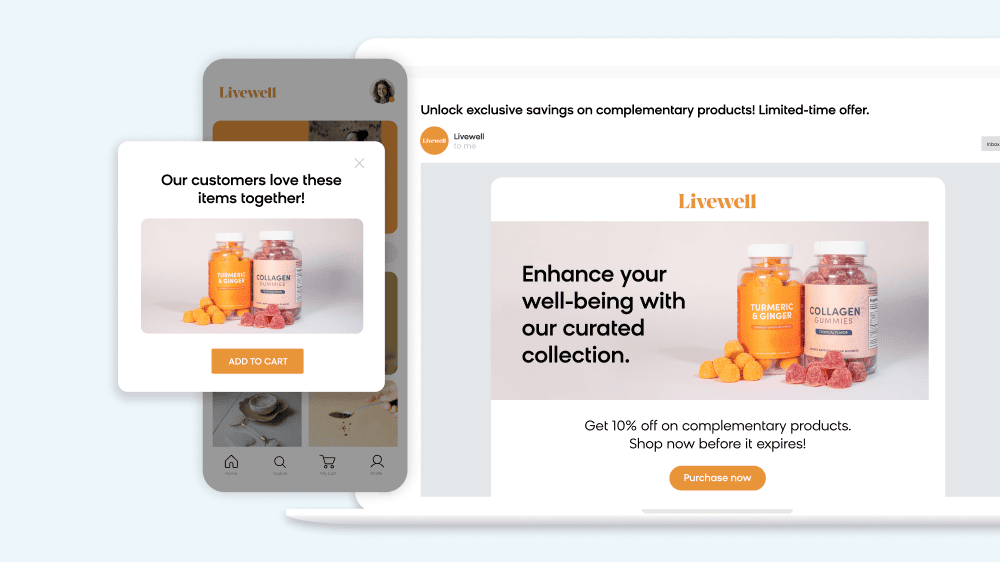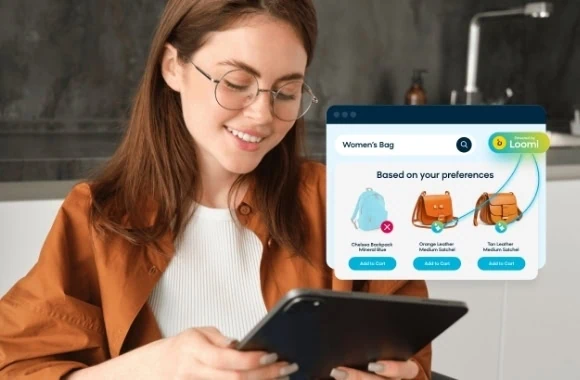For ecommerce businesses, boosting profits and growing profitability are top priorities. However, before you can make a significant impact on these metrics, you need to first ensure you’re focusing on customer relationships. If you can foster long-lasting customer loyalty, that saves you from having to spend as much time and resources on acquiring new customers, allowing you to focus on strategies that improve your bottom line.
This is where a comprehensive CRM strategy comes into play. At Vecton, we’re experts in this field — in this post, we’ll share some of our tips and insights to help you take advantage of AI and bring your CRM strategy to new levels.
What Is a CRM Strategy and Why Is It Important?
Let’s start by explaining what a CRM strategy is. Relationships with customers are crucial for every successful business. To manage these relationships, as well as create and sustain personal connections on a mass scale, companies use CRM and marketing automation platforms. The technical abilities of these tools are enormous, which is why you need a CRM strategy to use these complex technologies effectively.
We define a CRM strategy as the business approach focused on building and managing relationships with customers with the aim of improving their loyalty and value.
Having a well-defined CRM strategy provides companies with the following benefits:
- Focus: It defines goals and objectives, helping align efforts toward a meaningful target.
- Prioritization: Resources and efforts are concentrated on actions that most contribute to achieving business goals.
- Positioning: It leverages the company’s strengths and unique values in practice, enabling differentiation from competitors.
- Adaptability: It provides a framework for anticipating and responding to changes in the market, technology, and other external factors.
- Risk management: It enables proactive risk management, allowing the company to address potential risks before they escalate into crises.
The Emerging Role of AI in CRM Strategies
AI is transforming the CRM landscape. Experts agree that the process will take years or even decades, but even today, AI enables businesses to leverage vast amounts of customer data to personalize interactions at every stage of the customer journey. Through predictive analytics, AI can identify potential customers with a high likelihood of conversion and provide real-time recommendations that align with individual preferences, making early interactions more relevant and impactful. Additionally, AI helps optimize post-purchase engagement by automating personalized follow-ups, product recommendations, and loyalty rewards, which can enhance customer satisfaction and encourage repeat purchases.
AI-powered tools can detect subtle behavioral patterns indicating churn risk, enabling proactive intervention with targeted offers or content that reengages at-risk customers. Furthermore, AI’s ability to automate customer journey mapping and manage complex multichannel communication strategies improves the efficiency of CRM operations while ensuring that each customer’s experience is personalized and seamless. As AI technologies continue to evolve, they are becoming indispensable for brands looking to optimize customer lifetime value and foster long-term loyalty in an increasingly competitive market.
Customer Lifecycle as a Framework for Efficient CRM Strategies
A well-prepared CRM strategy is based on an in-depth analysis of the company’s portfolio of customers. Typically, the customer lifecycle framework is used for this purpose. This customer-centric approach enables companies to holistically manage the relationship with the full spectrum of customers — from prospects, through core customers, to the churned ones. At each stage of the customer lifecycle, the company can take advantage of the technology in order to strengthen its relationship with each customer in a personalized way.
The following five stages of the customer lifecycle are a good basis for customer relationship management within most CRM strategies:
- Potential customer: Not an actual customer yet, but the company treats them as if they were a new customer.
- First-time buyer: The customer has made a purchase but is still evaluating the product/company. This stage has the lowest retention. Usually, one failure is enough to discourage the customer.
- Repeat buyer: Customer begins to repeat purchases indicating that the company’s offering is of interest to them. They’re still evaluating the value of a relationship with the brand and remain sensitive to weaknesses in quality.
- Core customer: Customer regularly repeats purchases. The company’s offering meets their expectations. Occasional failures do not lead to defection. These customers are crucial for the overall profitability of the company.
- Churned customer: Core customers who have stopped making purchases for some reason. It is important to understand the reasons for customer churn and which of them are within the company’s control. The company can invest in winning them back.
Let’s dive into the practical possibilities and potential the AI has for potential customers and first-time buyers.
Engaging Potential Customers: How AI Transforms the Path to Conversion
The potential customers are not yet actual customers and the company’s goal is to convert them into customers. From the CRM perspective, the primary objective is to establish initial contact and begin building a relationship. This stage focuses on converting leads into engaged prospects by capturing consent for communication and providing an introduction to the brand. Key actions include obtaining marketing consent, automating follow-ups for unconfirmed subscriptions, and offering personalized product recommendations based on early behavioral data.
There are many ways in which AI can transform how businesses engage potential customers. The key tactic here is to use personalized communication powered by AI solutions.
A very common and practical application is AI-driven product recommendations for anonymous visitors. Even with limited data, AI can deliver highly relevant product suggestions, driving engagement and boosting conversion to purchase.
Another area of AI implementation is to use AI to build customer segments. This AI-based segmentation enables brands to tailor campaigns to specific customer groups based only on their behavior. These segments can be also leveraged in advertising across Google Ads and Meta Ads.
A very powerful AI-based feature of CRM platforms to be used at this stage is contextual personalization — by dynamically adjusting campaigns to every single visitor in real time, AI helps create more meaningful interactions, increasing the likelihood of conversion.
Last but not least, AI-powered analytics can help uncover hidden opportunities for optimization, whether it’s fine-tuning product listings or improving site performance.
Nurturing First-Time Buyers: Leveraging AI To Build Loyalty and Drive Repeat Purchases
For first-time buyers, the main objective is to solidify the relationship with the new customers after their initial purchase and to encourage repeat transactions. At this stage, CRM activities focus on enhancing customer satisfaction, building trust, and guiding first-time buyers toward becoming loyal, returning customers.
The CRM team concentrates on providing a personalized post-purchase experience, gathering feedback on the first transaction, and offering tailored product recommendations that align with the buyer’s interests. This stage is pivotal in establishing long-term loyalty by creating relevant touchpoints, such as second-purchase encouragement campaigns, personalized content on the website, and social proof that highlights product value.
At the first-time buyer stage, there are more data points about customer interactions with the brand which AI can utilize to improve how we connect with the new customers and convert them to another purchase. Using that information, AI can automatically determine the optimal communication channel for each customer, ensuring that we reach them where they’re most responsive. Beyond that, AI can predict the time when a customer is likely to make their next purchase and trigger timely reminders, helping keep your brand top of mind.
Apart from the time and channel of communication, offering content is essential and AI helps with that in several ways. First, there are AI-powered product recommendations tailored to individual interests, so we can present highly attractive options that drive conversions. Contextual personalization is another effective AI-based feature to make communications personal and highly effective. Add AI-generated content that leverages customer data to make each message feel personal, and we’ve got a winning strategy.
Strengthening Loyalty and Minimizing Churn: How AI Enhances Engagement for Repeat and At-Risk Customers
In the repeat buyer and later lifecycle stages, AI can be powerful for deepening customer loyalty, driving continued engagement and satisfaction, and minimizing customer churn.
For example, AI-based segmentation can take loyalty campaigns to the next level, sorting customers by their transaction history, price sensitivity, basket sizes, and other metrics that are known at this stage. This enables highly targeted campaigns tailored to the nuances of each customer segment, whether it’s exclusive offers for high spenders or timely promotions for value-driven shoppers.
Additionally, AI-based product recommendations can identify and suggest complementary products, adding value to each purchase and encouraging customers to explore broader parts of the brand’s offering.
In the final stage of the customer lifecycle, AI plays a critical role in reengaging at-risk and lost customers. With churn prediction, AI identifies customers likely to disengage, automatically triggering personalized actions — like special offers or targeted content — to incentivize them to stay. Automated reactivation campaigns, guided by AI segmentation, then help reconnect with lost customers through personalized messages or offers based on past interactions, increasing the likelihood of winning them back.
How Wojas Leveraged Zero-Party Data, AI, and Personalized Email Campaigns To Boost AOV
Wojas is a renowned leader in producing and distributing high-quality footwear and leather goods. With a rich heritage spanning several decades, the company has become a trusted brand both domestically and internationally.
Together with Vecton, Wojas has implemented Bloomreach Engagement, aiming to meet its clients’ needs by combining offline and online experiences and fostering lasting relationships. It started with skillfully executed integration of data and technology and ended as a solid groundwork for an enduring journey of understanding and connecting with customers on a deeper level. Now, Vecton’s role is to continuously empower the effective utilization of the technology to reach this goal.
With the support of Vecton and the power of Bloomreach Engagement, Wojas has achieved innovation by implementing many different AI-generated variants of content tailored to each customer microsegment. The result was improved customer satisfaction and sales growth. As the strict A/B test showed, the AI-based email campaigns led to a 19% increase in revenue per email recipient and an impressive 27% rise in average order value.
How Vecton and Bloomreach Work Together To Bolster CRM Strategies
The evolving landscape of CRM and marketing automation is being profoundly shaped by AI. Businesses that strategically leverage this new technology across the whole customer lifecycle — from acquisition to retention and churn management — are positioning themselves for sustainable growth and deeper customer loyalty. AI’s ability to predict behavior, personalize at scale, and optimize interactions in real time enables brands to deliver more relevant, timely, and effective campaigns, ultimately enhancing the customer experience at every stage. As customer expectations continue to rise, companies that harness the power of AI-driven CRM will not only build stronger relationships but also drive greater lifetime value and retention.
Together, Bloomreach and Vecton empower ecommerce businesses to adopt a more customer-focused strategy. By harnessing the power of customer data through AI-driven solutions, businesses can personalize every touchpoint and optimize the entire customer journey. Discover how Bloomreach and Vecton can help you leverage AI technologies to enhance customer interactions, boost retention, and drive sustainable growth in today’s competitive landscape.













